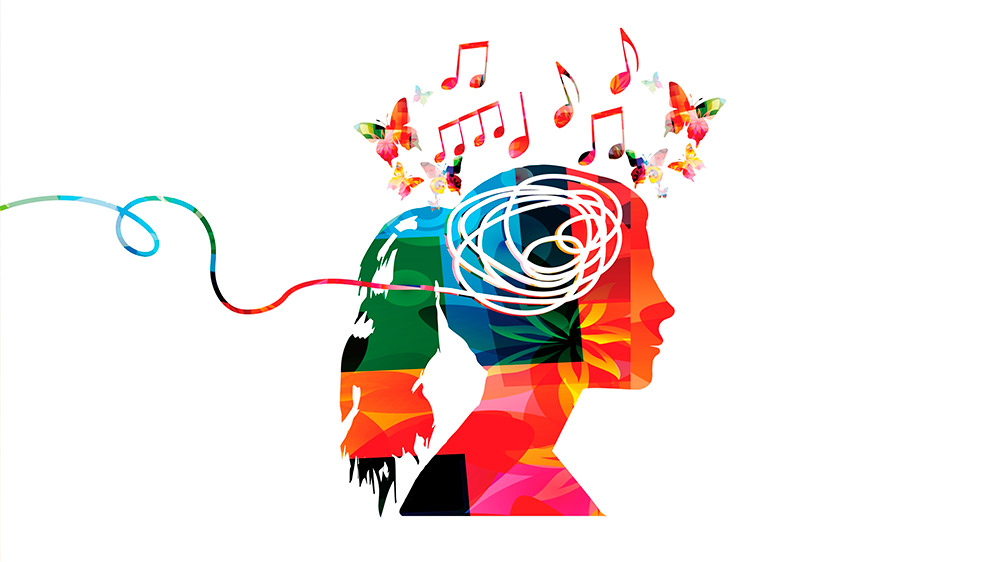
By
Charity Vizcaino
As I mulled over the topic of this month’s issue, I began to reflect on the profound impact of music on my own life. It’s not lost on me that if not for music, I likely would not be here writing this article. As a young child of 6 or 7, I happened upon my mom’s CD collection and found classical music. I would twirl around the house for hours, raptured in imagination, pretending I was in a castle. As a pre-teen determined to find my own identity, I sat too close to the big speaker we had in our living room and listened to KLAQ (shout out to Double G!). While suffering from Major Depression as a teenager, I blasted Linkin Park through my headphones while staring at the ceiling in my room. Even as I type this, there is music playing in the background.
Music is everywhere. It’s an industry worth over $50 Billion! When you ask most people what they do to relax, they say “listen to music”.
The origins of music have long been debated.
Archeologists, biologists, linguists, philosophers, and psychologists all have their own theories about the history of music, how it came to be, and why. Some argue that music might have even come before language. Pre-historic pictures on the walls of caves show evidence of flutes made from bone. Whether it’s using chants and drum beats for religious rituals or the song of a bird’s mating tune, rhythm is everywhere. How can it not be, when our own heartbeat is the rhythm of life? Music is a universal language that unites people of all backgrounds.
Does music positively impact our mental health?
In one meta-analysis (a study of many research studies) that examined 47 articles looking at music on the impact of stress, found that there is a positive correlation between listening to music and a reduction of distressing feelings, such as worry, feeling restless, or anxious. Not only has music been proven to help reduce negative emotions, but also to increase positive ones. There is also evidence to show that when there are musical activities done in a group of people, it can help them to feel connected. The increase of positive emotions felt while listening to music, whether by yourself or with others, is due to neurotransmitters such as oxytocin and endorphins. These neurotransmitters are responsible for helping us to bond and feel good by improving our mood and boosting our self-esteem.
- Oxytocin
Love Hormone: Helps with pair bonding, trust and positive feelings - Endorphins
Feel Good Hormone: Reduces aches/pains and stress/anxiety
Can music impact our physical health as well?
Absolutely! As previously stated, music has a huge impact on our brain’s neurotransmitters, it can increase hormones that naturally help reduce pain and bodily discomfort. For centuries, music has been used as a therapeutic agent. A study in Brazil looked at children ages 1-16 years old who were undergoing heart surgery. In the 24 hours post-operation in the ICU, the researchers provided 30 minutes of classical music listening to half the participants, while the other half received no music. The results found that the children who listened to music had lower heart rates, better respiratory rates, and reduced pain and anxiety compared to the children who did not listen to music.
Are there particular types or genres of music that are more effective?
In general, classical and instrumental music have been shown to be effective to calm the mind and reduce stress. There are other studies that show music with a tempo of 60 BPM (beat per minute), is the ideal rhythm for producing Alpha brainwaves.
Our brain has five different types of brainwaves, varying from very slow to fast. Alpha brain waves are the mid-point, and they occur when a person is awake but not actively engaged in problem solving. When Alpha waves are produced it helps individuals to feel less anxious, calmer and also respond to things like meditation and mindfulness.
Streaming services like Spotify or Apple Music have playlists that have been created with solely 60 BPM songs.
Can music be used in therapy? If so, how?
I love this question, and the answer is a resounding yes! I find using music in sessions to be especially effective when working with preteens and teenagers. Some clients come to session and have difficulty verbalizing what they feel. When this happens, I might ask a client to reflect on a song they are relating to at the moment, and if they feel comfortable, to share it in session. As we listen to the song together, it provides an opportunity for the client to feel understood, and to have a way to express their internal voice. Some clients focus on the lyrics, others might talk about how the music moves them.
What advice would you give someone interested in integrating music therapy into their lifestyle for overall well-being? Are there simple practices or exercises you can suggest?
We are all familiar with playlists, and most of us probably have different playlists for different moods. When listening to music we are often looking for a certain feeling to be evoked- whether that is nostalgia, rage, love, etc.
I encourage you to get curious about your internal world while listening to music, no right or wrong answer, just notice what certain music might evoke. This data can inform you of how you might want to use music in the future.
- How do I feel when I start or end my day with a favorite song?
- When I’m stressed, could music improve my mood?
- What genre of music is most relaxing for me?
- What songs bring up feelings of joy and motivation?
- Is my heartbeat faster or slower when I listen to ______ ?
Just like my example of using music in a therapy session, I believe talking about or sharing music can be a beautiful way to connect with loved ones.















